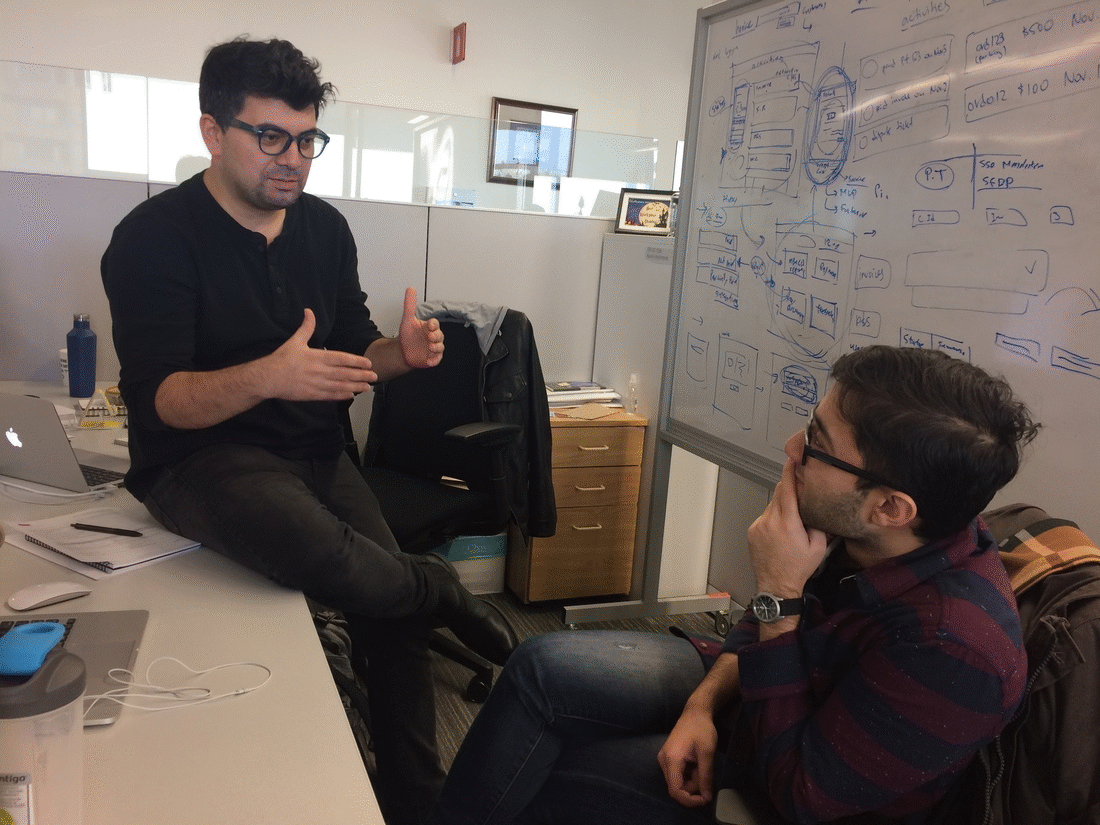Someone once told me that sometimes the best way forward is to look back. I’m not exactly sure who that was, but he/she must’ve been very wise because that’s exactly what I’m doing. But why? In reflecting we often discover hidden kernels of experience, previously overlooked, and these kernels are often what can help us overcome challenges in the future. Having gone through two co-ops and still journeying through my ever-continuing education, “now” seems to be a fitting time to look back and see what I can learn from the past.
Learning to be Confident
My current co-op with the City of Surrey as a UX designer will be the focus of this reflection as it’s the most recent and is an on-going experience for me (wish me luck for the future!). Previous experience that gave me a leg up, and allowed me to hit the ground running with the City, was with the Strategy and Innovation Office at BC Children’s. I won’t delve too far into the details (that could be a blog post on its own) but my biggest takeaway from the experience was confidence building. Confidence in myself, in my communication skills and in my work, which has helped me grow immensely as not only a designer, but as a person too.
That confidence carried over to the City has been an immensely beneficial point of learning for me. Confidence isn’t always an easy skill to inculcate and improve on, but it is something everyone should work towards building. Speaking up when you have an opinion, thought, concern, or an idea is the first step to building that confidence. Your voice matters and when your co-op team hears that, they feel more comfortable working with you because they know you won’t be afraid of expressing the unique knowledge you possess (which you definitely do bring to the table). Confidence is something I’ve built slowly over time and it’s something that’s had an impact on almost all facets of my life. I can confidently say that, without confidence, I wouldn’t be in the position I am today.

Tools of the Trade
Another point that I’ve been reflecting on recently is the tools and process that I’ve worked with at the City and how they differ from what I’ve been learning at SFU. SFU has definitely given me the skills I need to delve into a project with confidence so I won’t feel overwhelmed by how to approach a task. At SFU, the design process has been hammered into me one way: ideate, prototype, refine, develop, and so forth. I’ve learned certain tools as well, such as Adobe Illustrator as a general purpose, jack-of-all design tool, Axure, and some other niche tools like Unity.
At the City, I’ve predominately used Sketch as my UI design tool of choice. It allows us to create wireframes with a higher fidelity, and makes it efficient to create screens that are consistent across the Surrey brand. As a UI tool, Sketch is amongst the best and is at this point, an industry standard. It’s a tool I used previously at the SIO, but wasn’t something I had the experience to be confident with. However, I trusted myself that I could learn it and began diving into the software, reading articles about it, learning tips and tricks, and watching videos. It also helped that my co-workers were more than open to helping me out when I needed it, but as a personal point, I wanted to prove to myself that this was a tool I could master by myself. Alongside Sketch, to align our wireframes with a flow, we use Invision as a prototyping tool that can connect our wireframes together. It is another tool of the trade that’s a standard across the industry.
The takeaway from this reflection for me has been that as I continue forward along my journey, it’s important I broaden my horizon to remain aware of what’s happening in the industry and what’s in demand in the near future. Most importantly however, I’ve learned that there’s always something more to learn. It’s easy to often fall into a lull where you simply follow along the known path, in this case, simply using tools that we’ve been taught in school. There’s nothing wrong with that either, the tools we learn are fantastic and are still used in the industry. However, technology is always changing, and new tools are always emerging that are more efficient.
This also carries over directly to more abstract concepts in design that I think are important. There are many great websites such as Muzli, Medium, Awwwards that curate articles regarding design that are often great reads; reading them not only serves as a quick five-minute break in between work, but they also give you the chance to learn something new. It can be anything, whether something regarding UX design or the latest trends in buttons, or something about typography, or maybe even a simple post showcasing cool designs that could perhaps be the inspiration toward finding the solution to that one problem you’ve been stuck with. You learn a great deal in school, but why stop there? Take the time to learn something new by taking action, travel off the path that’s been laid out for you in terms of formal education. Read a blog (like this one which is absolutely fantastic), gain a better understanding of a new piece of technology or software, and ask a co-worker what their thoughts are on something, anything! This all helps us to learn and grow, which is at the end, the most important goal.
In reflecting on my co-op experience for the past semester, what’s stood out for me most and what’s helped me grow has been building a foundation of self-confidence, and remembering that as I go forward, learning new tools and process is always going to be beneficial. Confidence isn’t the easiest trait to work on, but it often takes time, patience and more importantly, stepping out of your comfort zone. Learning is something that we often neglect because it doesn’t necessarily fit into our busy schedules, but taking some time out of our lives to learn and explore new ideas keeps our minds fresh and can make us better at whatever it may be that we are doing.
Beyond the Blog
-
To learn more about opportunities like Fahad's, visit the Interactive Arts & Technology Co-op homepage.















